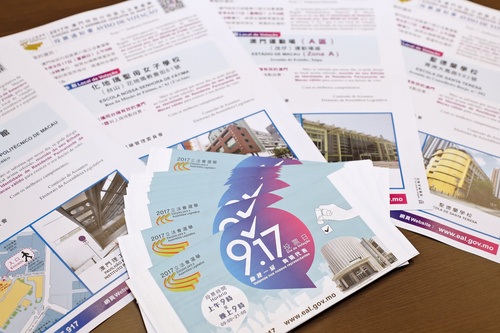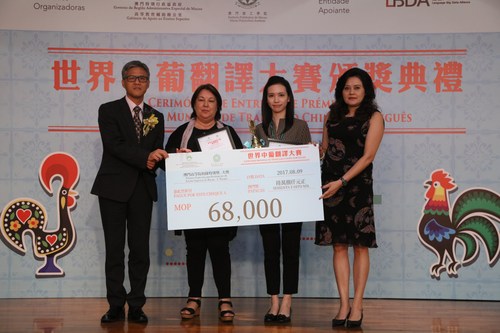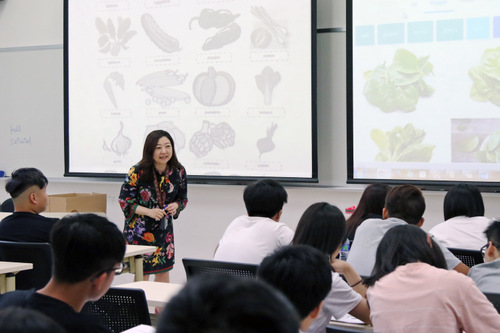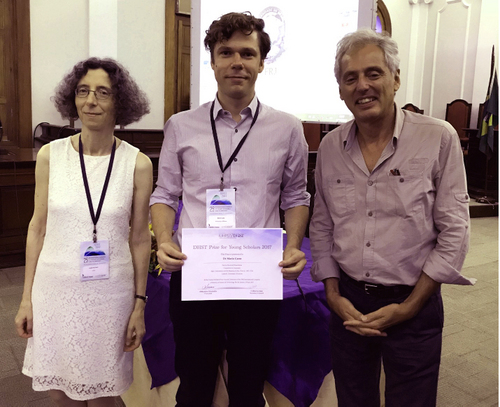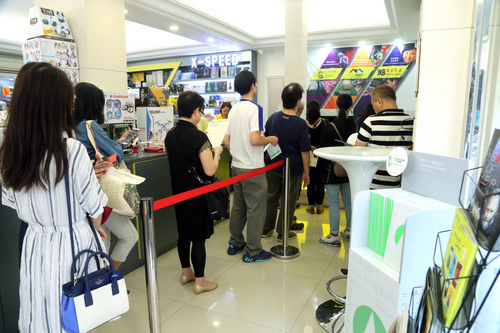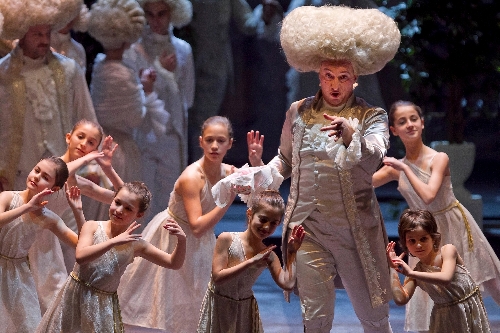Macao SAR Government Portal
News
Travel alert to Jiuzhaigou, Sichuan
Given the recent safety situation in Jiuzhaigou, Sichuan Province, the China National Tourism Administration has issued a travel alert. Following is the translated version of the full text:
…
Demographic statistics for the 2nd quarter of 2017
Information from the Statistics and Census Service (DSEC) indicated that the total population was 648,400 as at end-June 2017, a slight increase of 100 quarter-to-quarter; female population (342,500) accounted for 52.8% of the total.
…
Mortgage loans statistics – June 2017
According to statistics released today by the Monetary Authority of Macao, new approvals of residential mortgage loans (RMLs) fell from the previous month while those of commercial real estate loans (CRELs) increased in June 2017. With regard to the outstanding balance, RMLs and CRELs both increased.
…
Electoral Affairs Commission to send out poll notices this week
The Electoral Affairs Commission for the Legislative Assembly Election is to send out – starting this week – notices to inform voters about the polling station where they can vote on election day, set for 17 September.
…
World Chinese-Portuguese Translation Competition awards ceremony successfully held
Macao Polytechnic Institute (MPI) successfully hosted the awards ceremony of the ‘World Chinese-Portuguese Translation Competition’ today (9th of August). Jointly organised by the Tertiary Education Services Office and MPI, with the Language Big Data Alliance as the supporting unit, the competition aims to enhance the exchange of Chinese-Portuguese translation techniques between students of higher education institutions around the world, to train Chinese-Portuguese translation professionals, and to further promote the application of advances in Chinese-Portuguese translation teaching and research in Macao, the Chinese Mainland and the Lusophone countries according to the ‘Belt and Road’ initiative.
…
UM’s immersive English summer programme prepares incoming freshmen for English-medium education
The Summer English Immersion Programme 2017, organised by the University of Macau (UM) Faculty of Arts and Humanities, has ended. The programme was designed to prepare incoming freshmen for English-medium education at UM. Participating students went through a four-week intensive training in an immersive English environment, living and communicating with native speakers on a daily basis. Students described the programme as fun and helpful, saying that it boosted their confidence in speaking English and helped them adapt to university life.
…
Consumer Council released specific price survey result on tissue papers, household cleansing products, and oral care products
Consumer Council conducted its specific price survey on tissue papers, household cleansing products, and oral care products on 9 August for the implementation of Section 2b), Article 10, Law 4/95/M of 12 June.
…
UM scholar receives international young scholar award
Mario Cams, an assistant professor from the Department of History, Faculty of Social Science (FSS), University of Macau (UM), recently received the 2017 DHST Prize for Young Scholars from the Division of History of Science and Technology (DHST), International Union of the History and Philosophy of Science and Technology (IUHPST), for his outstanding academic performance and research in the history of science.
…
Ticket sales for the MIMF well-received on the first day of sales
The tickets for the 31st Macao International Music Festival (MIMF), organised by the Cultural Affairs Bureau (IC), went on sale on 6 August (Sunday). A large number of people waited at different ticket offices to purchase tickets. Sales were well-received as over 5,000 tickets were sold on the first day of ticket sales, and the percentage of the ticket sales for most of the shows were more than 60%.
…
Ticket sales for the MIMF well-received on the first day of sales
The tickets for the 31st Macao International Music Festival (MIMF), organised by the Cultural Affairs Bureau (IC), went on sale on 6 August (Sunday). A large number of people waited at different ticket offices to purchase tickets. Sales were well-received as over 5,000 tickets were sold on the first day of ticket sales, and the percentage of the ticket sales for most of the shows were more than 60%.
…


